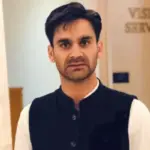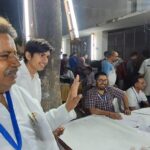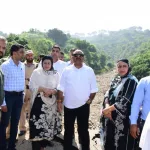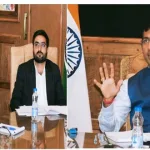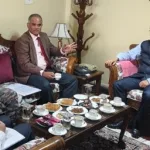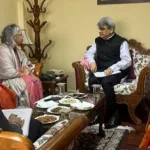India has been consistently raising the voice for the reforms in the United Nations (UN). Especially the focus is on the present structure and working of the United Nations Security Council (UNSC).India’s Permanent Representative at the United Nations, Ambassador Ruchira Kamboj has been consistently leading India vociferously in this reform movement. Speaking in the UN General Assembly on the Second Anniversary of the unanimous adoption by UNGA of the ‘Veto Initiative’- Strengthening of the UN System, Ruchira Kamboj said that the Security Council has used its working methods to hide vetoes and disguise them under the ad hoc working methods of its committees which act on its behalf but have little accountability. This is indeed the challenge that has hampered the working of the UN in an inclusive manner. In a veiled jibe at China, India has said that the “holds” placed on proposals in the UNSC sanctions committees are “disguised vetoes” on matters such as listing Pakistan-based global terrorists where some Council members will not take any responsibility. While speaking at the UN she has rightly said on Tuesday, “The working methods of anybody must respond to the challenges confronted by it. And the United Nations Security Council’s record in measuring up to the mounting challenges has been abysmal, to say the least.” Speaking in the UN General Assembly on the Second Anniversary of the unanimous adoption by UNGA of the ‘Veto Initiative’- Strengthening of the UN System, Kamboj said that the Security Council has used its working methods to hide vetoes and disguise them under the ad hoc working methods of its committees which act on its behalf but have little accountability.Not only that she underlined that “Those of us familiar with the work of the Sanction Committees and its tradition of putting “holds and blocks” are aware that these are disguised vetoes on matters on which some Council members will not take any responsibility, and are not required to explain their decisions.” Kamboj’s remarks appeared to be an apparent reference to China which has repeatedly put holds and blocks on proposals submitted by India and its partners like the US to designate Pakistan-based terrorists under the 1267 Al Qaeda Sanctions Committee of the Security Council. Two years ago, Resolution 76/262 was adopted in the UN General Assembly deciding that the President of the 193-member General Assembly will convene a formal meeting within 10 days of the casting of a veto by one or more permanent members of the 15-nation Security Council. Kamboj said that the sentiment in the UNGA resolution reflecting the need to address the opaqueness of the working methods of the Council and instilling accountability is welcome but it only scratches the surface. Indeed consensus building has been the concern and it has been relegated to the background. Addressing this concern she did not mince words and stated that while recognising the significance of these efforts, we would want these efforts to be undertaken in a manner that creates the environment for consensus building rather than finger-pointing. She reinforced that it is “very clear” today that a majority of the Member States, including most of those who were not even independent at the time of the drafting of the United Nations charter, want reform and do not feel represented in the decisions of the United Nations Security Council. She has blown into smithereens the hypocrisy and cold war baggage at the international body that is keeping the emerging world powers like India out of the decision making process. To put this in perspective she raised the issue of the dysfunctionality of the United Nations Security Council and the use of the veto that we are discussing is not only because the veto is being used (because after all as long as the veto exists it will likely be used), but also because of the “binary nature” of the composition of the membership of the Council, which is not reflective of contemporary realities, and therefore ensures that the Council takes decisions in a vintage ‘cold war’ mode. It was important to register the Indian concerns on which the United Nations Security Council has failed to find consensus, have seen more progress and solutions outside. Giving the recipe for a way forward to take the UNSC out of the present logjam she cited the consensus arrived at the New Delhi G20 summit as one example of collective decision making and added that unless the composition of the permanent membership of the Council is changed and made reflective of today’s realities, “diplomacy and dialogue will not get a real chance to find solutions to our challenges.” It must be noted that upon India’s initiative, the African Union became a permanent member of the G20 at the New Delhi Summit in September 2023 held under India’s Presidency of the grouping. Ambassador Kamboj has hit the nail on the head and clearly stated that another kind of “hidden veto” is being used in the Intergovernmental Negotiation process on UN Security Council reform. Indian intervention is timely to reform the UN and UNSC to make it inclusive and save it from being ineffective for world peace and human development.
All is Not Well at the UN & UNSC
Sign Up For Daily Newsletter
Be keep up! Get the latest breaking news delivered straight to your inbox.
By signing up, you agree to our Terms of Use and acknowledge the data practices in our Privacy Policy. You may unsubscribe at any time.
Leave a Comment Leave a Comment


